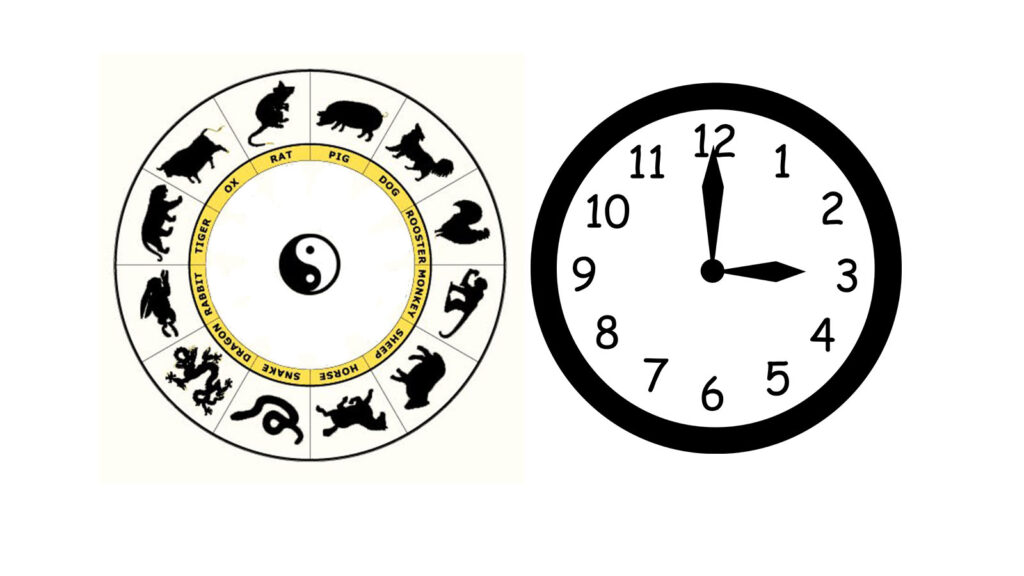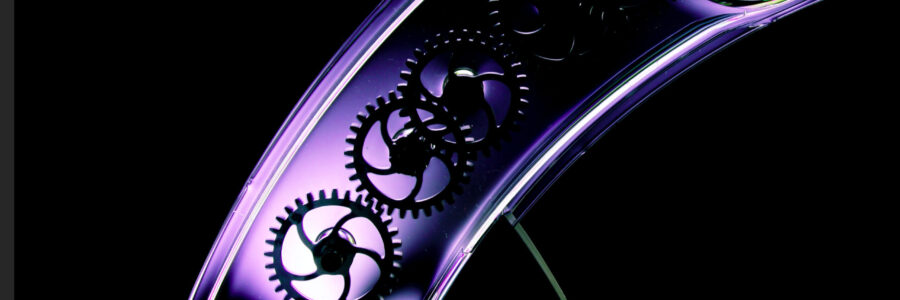You’ve most likely heard of the Chinese zodiac, and maybe you even know your Chinese animal year. While we typically read the characteristics of each of the 12 birth year signs (the horse, the rooster, or the dragon, etc.) mainly for fun, each sign’s traits often contain interesting wisdom for those born that year.
Did you know birth year horoscopes are only one way that the ancient Chinese used these 12 animals to designate important cycles and times?
The Chinese Body Clock
Traditional Chinese medicine uses the 12-animal system to divide up the day. Each 24-hour day is divided into twelve 2-hour segments. Each 2-hour segment is designated with an animal sign and governs a particular organ system.
Observant TCM practitioners noticed that during each part of the day, the function and repair of a specific organ system is the focal point for the body and its Qi flow. Qi is the invisible life energy that activates healing and repair and fuels organ function. By knowing this Chinese Body Clock, and which hours govern which organs, a wise doctor can make a better diagnosis and prescribe more effective treatment.
The Hours and Their Organ Systems

Knowing how the Chinese Body Clock works, you might have some interesting insights into your own health. First, here are the two-hour segments, their animal sign, and the organ system governed by each:
Rat – 11pm – 1am Gallbladder
Ox – 1am – 3am Liver
Tiger – 3am – 5am Lung
Rabbit – 5am – 7am Large Intestine
Dragon – 7am – 9am Stomach
Snake – 9am – 11am Spleen
Horse – 11am – 1pm Heart
Goat – 1pm – 3pm Small Intestine
Monkey – 3pm – 5pm Bladder
Rooster – 5pm – 7pm Kidney
Dog – 7pm – 9pm Pericardium
Pig – 9pm – 11pm Triple Burner
Clues from the Chinese Body Clock
Notice how from 5am – 7am, the Rabbit hour governs the large intestine. That squares with the fact that a healthy body will normally have a bowel movement the first thing in the morning, as energy flows through and activates the large intestine.
Next, from 7am – 9am, the Dragon hour governs the stomach. And accordingly, the next thing after we wake up, we usually eat our first meal, activating our stomach and its digestive power.
If we move the clock to noon, the hour of the horse governs the heart. The heart is ruled by fire, and noon is often the hottest part of the day with the Sun at its highest. We can use this energy to be highly productive, or we can use this wisdom to rest and protect our heart. To avoid overheating, or burning up too much energy, the Chinese culture – along with many other cultures around the world – incorporate a rest or siesta time after lunch.
Diagnostic Tool
When a patient visits a TCM doctor and reports that they always wake up in the middle of the night at a 2:30 am, the doctor can investigate whether there is a blockage or imbalance in the liver that may be causing the problem. The liver drives mental-emotional states. A smooth flow of Liver Qi ensures balanced states. But if people are going through emotionally tumultuous times or ruminating about their emotional responses, people will often find themselves wide awake at this hour.
Similarly, if a patient’s symptoms feel worse in the late afternoon, there may be an imbalance or weakness in the bladder energy system that is contributing to their disease. This can point to additional acupuncture points or herbs to add to a patient’s treatment.
TCM takes into account a patient’s total health and lifestyle before making diagnoses and treatment plans. That’s why, when you visit a TCM herbalist or acupuncturist, they will ask you many, many questions, including what times your symptoms are worse, or what season of the year your flare-ups are more likely to occur. The more evidence they can gather, the better they can pinpoint the root cause of your health problem.
Conclusion
Think about your day: when do you feel at your best? When do you feel sluggish or unproductive? Perhaps the Chinese Body Clock and working with a TCM professional can reveal steps to take, and some simple lifestyle changes to help you reach your highest wellness potential.
Want to Learn More About Skin Health?
Click HERE to get the Amethyst Holistic Skin Solutions Newsletter. You’ll receive interesting information about skin health via articles, before/after pictures, case studies of Amethyst patients, videos, interviews and more. Feel free to share this article with someone who you think may benefit.
About the Author
Olivia Hsu Friedman, LAc, Dipl.OM, DACM, Cert. TCMDerm, is the owner of Amethyst Holistic Skin Solutions and treats Acne, Eczema, Psoriasis, and TSW. Olivia treats patients via video conferencing using only herbal medicine. Olivia is Chair of the Board of Directors of the American Society of Acupuncturists, serves on the Advisory Board of LearnSkin, and is a faculty member of the Chicago Integrative Eczema Group sponsored by the National Eczema Association.



